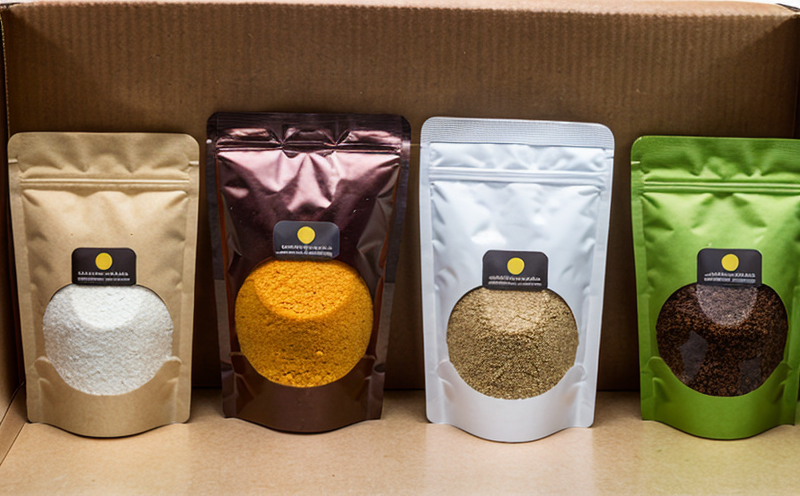UV Stabilizer Migration Testing in Food Contact Plastics
The testing of UV stabilizers in food contact plastics is a critical step in ensuring product safety and compliance with international standards. UV stabilizers, such as hindered amine light stabilizers (HALS) and antioxidants, are essential additives used to protect polymers from the degrading effects of ultraviolet (UV) radiation. These compounds help extend the life span and performance of plastics by reducing their susceptibility to photodegradation.
However, when these materials come into contact with food or beverages, there is a potential risk that some stabilizers could migrate into the product. This migration can lead to contamination issues which may result in health hazards if not properly controlled. Therefore, rigorous testing is required to ensure that any migrated substances do not exceed safe limits set by regulatory bodies.
Our laboratory specializes in conducting comprehensive UV stabilizer migration tests using validated methods compliant with international standards like ISO 10993-12 and ASTM F1967. These tests are designed to simulate real-world conditions under which food contact plastics may be exposed, allowing us to accurately measure the amount of migrated stabilizers over time.
The process involves carefully selecting appropriate test specimens based on their intended use in food packaging applications. Specimens must represent typical manufacturing processes and end-use scenarios. Once selected, these samples undergo extraction procedures designed to mimic actual exposure situations such as immersion in water or other relevant solvents at specified temperatures.
After extracting potentially migrated compounds from the sample material, we analyze them using advanced analytical techniques like high-performance liquid chromatography (HPLC), gas chromatography-mass spectrometry (GC-MS), and Fourier transform infrared spectroscopy (FTIR). These methods allow us to identify individual components within the mixture accurately while quantifying their concentrations.
Based on our findings, we provide detailed reports outlining all detected chemicals along with corresponding migration levels. Compliance assessments are also included where applicable according to relevant regulations such as FDA 21 CFR Part 178 or EU Directive 10/2011/EU. Our aim is not only to meet but exceed expectations by delivering results that can be used confidently in decision-making processes related to product development, quality assurance, and regulatory compliance.
It’s important to note that proper formulation of food contact materials plays a vital role in minimizing the risk of migration. By understanding how different additives behave under various environmental conditions, manufacturers can optimize their formulas for better performance while maintaining safety standards.
Why It Matters
The importance of UV stabilizer migration testing cannot be overstated, particularly when it comes to ensuring the integrity and safety of food contact plastics. Without this crucial step in the manufacturing process, there is a risk that harmful substances could leach into packaged goods, potentially causing significant health risks for consumers.
Regulatory requirements demand adherence to strict guidelines regarding what chemicals can be used in direct contact with food products. Compliance with these regulations helps protect public health by preventing contamination of consumables through improper material handling practices during production or storage.
From an operational perspective, conducting thorough UV stabilizer migration tests allows companies to maintain high standards throughout their supply chain. This includes working closely with suppliers who provide raw materials and ensuring that all components used in final products meet stringent quality criteria.
Customer Impact and Satisfaction
By offering reliable UV stabilizer migration testing services, we contribute significantly to enhancing customer confidence in our clients’ offerings. When manufacturers know their products comply fully with regulatory requirements, they can reassure both internal stakeholders and external customers about the quality of their goods.
This transparency fosters trust between businesses operating within the same industry ecosystem. It also helps build stronger relationships among suppliers, distributors, retailers, and end consumers who ultimately benefit from safer packaging solutions that minimize risks associated with improper material selection or poor manufacturing practices.
Use Cases and Application Examples
- Beverage Containers: Testing for migration of stabilizers into beverages helps ensure that containers remain stable during prolonged storage periods under varying environmental conditions.
- Packaging Films: This type of testing is particularly relevant for flexible packaging used in food and beverage applications where extended exposure to sunlight could pose risks if not properly managed.
- Plastic Utensils: Ensuring that utensils made from recycled plastics do not contain hazardous levels of migrated stabilizers is crucial, especially considering their frequent use by consumers who come into direct contact with food items.





